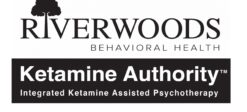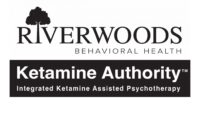
Much like Alice's journey down the rabbit hole introduced her to a world beyond her imagination, the exploration of ketamine's therapeutic benefits for depression opens new doors for understanding mental health treatment.
We've gathered insights on how ketamine acts swiftly to elevate mood, its long-term advantages for individuals grappling with depression, and its potential to enhance psychotherapy outcomes.
While acknowledging its promise, we also consider the safety and side effects, navigating the balance between breakthrough and caution.
Join us as we uncover whether ketamine could be the key to unlocking a new era in depression treatment, inviting further discussion on its place in mental health care.
Understanding Ketamine's Mechanism
Ketamine acts by targeting specific receptors in the brain, altering neurotransmitter activity and potentially easing symptoms of depression. Unlike traditional antidepressants, which focus on the serotonin system, ketamine interacts with NMDA receptors related to the neurotransmitter glutamate. Glutamate plays a crucial role in mood regulation and cognitive functions. By modulating these receptors, ketamine can initiate a cascade of changes in the brain's chemistry and structure, offering a novel approach to treatment-resistant depression.
We've observed that ketamine's effects go beyond mere symptom relief. It's thought to stimulate the growth of new synapses, enhancing neural connectivity in areas of the brain that are often impaired in individuals with depression. This aspect of neural plasticity is a groundbreaking discovery, shedding light on how rapidly ketamine can improve mood disorders when other treatments have failed.
It's also worth noting that ketamine's pharmacological profile is complex, involving interactions with other neurotransmitter systems, which may contribute to its wide-ranging effects. We're continuing to uncover the intricacies of how ketamine works, but its ability to rapidly modulate neurotransmitter systems is a cornerstone of its potential as a therapeutic agent for depression.
Immediate Effects on Mood
Patients often report a rapid uplift in their mood following ketamine treatment, marking a significant departure from the slow-acting nature of conventional antidepressants. Unlike traditional options, which may take weeks to manifest noticeable changes, individuals experiencing ketamine therapy often describe feeling a sense of relief within hours of their first session. This immediate effect can be a beacon of hope for those who've struggled with depression for extended periods, offering a quick glimpse into a life less burdened by their condition.
We've observed that this quick turnaround isn't only profound in its speed but also in the depth of impact it has on patients' lives. Many describe a significant reduction in depressive symptoms, which allows them to engage more fully with their daily activities and relationships. It's as if a fog lifts from their minds, enabling clearer thought processes and a renewed interest in hobbies and social interactions that depression had pushed aside.
It's important to acknowledge, however, that while the initial mood enhancement is promising, it's just the beginning of the journey. The immediate effects serve as a critical first step towards recovery, offering an essential bridge away from the depths of depression.
Long-Term Benefits for Patients
Beyond the immediate uplift in mood, many individuals find that the benefits of ketamine treatment extend far into the future, fostering enduring changes in their battle against depression. The long-term benefits are significant and have been a game-changer for countless patients who've struggled with traditional treatments.
We've observed that for many, ketamine provides a reset of sorts, offering relief that lasts well beyond the initial treatment phase. Patients often report a sustained decrease in depressive symptoms, including a reduction in thoughts of suicide, an improved outlook on life, and increased motivation. This enduring impact can make a substantial difference in someone's ability to engage with and enjoy life.
Furthermore, the long-lasting effects of ketamine treatment can also lead to improved relationships, better performance at work or school, and a greater sense of personal achievement. It's as if ketamine opens a door to a more hopeful future, allowing individuals to rebuild their lives on a firmer, more positive foundation.
In our experience, the long-term benefits of ketamine for treating depression aren't just about managing symptoms but about transforming lives. It's a powerful tool that, for many, marks the beginning of a new chapter, free from the heavy shadow of depression.
Enhancing Psychotherapy Outcomes
In conjunction with traditional psychotherapy, ketamine treatment can significantly enhance therapeutic outcomes for individuals battling depression. We've observed that when patients receive ketamine, they often experience a rapid reduction in depressive symptoms, which can create a more receptive state for psychotherapy. This synergistic effect allows us to delve deeper into therapeutic work sooner than we might with psychotherapy alone.
Through this combined approach, we're also finding that patients are able to engage more fully in their therapy sessions. The relief from depressive symptoms that ketamine provides can foster a greater sense of hope and motivation, which are crucial components in the healing process. This makes our therapeutic efforts more effective, as patients aren't only more present during sessions but are also more likely to apply what they learn outside of them.
Moreover, the insights gained during ketamine-assisted therapy sessions can be profound. Patients often report experiencing significant breakthroughs that might've taken much longer to achieve with traditional therapy alone. These breakthroughs can be pivotal in their recovery, offering new perspectives and coping strategies that they can carry forward.
In our experience, enhancing psychotherapy outcomes with ketamine treatment has offered a valuable tool in our arsenal against depression, providing a bridge to deeper therapeutic work and more enduring mental health benefits.
Safety and Side Effects
While exploring the therapeutic benefits of ketamine for depression, it's crucial to also consider its safety and potential side effects. We've seen remarkable outcomes in patients, but we must weigh these against the risks involved.
Common side effects include dizziness, nausea, increased blood pressure, and dissociative sensations during treatment. These are generally short-lived, fading shortly after a session ends.
It's also important to note that long-term effects of repeated ketamine use aren't fully known. We're cautious about potential dependency issues, although ketamine used in a controlled, medical setting under professional supervision minimizes this risk. We make it a priority to monitor our patients closely, adjusting treatment plans as necessary to ensure safety and effectiveness.
Moreover, ketamine isn't suitable for everyone. We carefully screen patients for conditions that might increase risk, such as uncontrolled high blood pressure or a history of substance misuse. In our practice, ensuring patient safety is as important as achieving therapeutic success. We're committed to providing comprehensive care, which means being transparent about the potential downsides while harnessing ketamine's powerful benefits for those struggling with depression.
Frequently Asked Questions
How Does Ketamine Treatment for Depression Compare in Cost to Traditional Antidepressant Therapies?
We're looking into how the cost of ketamine treatment stacks up against traditional antidepressants.
It turns out, ketamine therapy can be pricier upfront compared to regular antidepressant medications. This is mainly because it often involves more specialized administration, like IV infusions, and requires medical supervision.
However, for some of us, the potential for rapid relief might justify the higher cost, especially when other treatments haven't worked.
It's a balance between effectiveness and expense.
Can Ketamine Treatment Be Effectively Administered at Home, or Does It Require a Clinical Setting?
We've been wondering whether it's possible to administer ketamine treatment at home, or if it's something that needs a clinic's supervision.
From what we've gathered, it largely depends on the form of ketamine and the specifics of the treatment plan.
Some forms, like nasal sprays, might offer a bit more flexibility for home use under strict guidance, while others, especially IV infusions, definitely require professional settings to ensure safety and effectiveness.
What Are the Legal Considerations or Regulations Surrounding Ketamine Treatment for Depression in Various Regions?
We're diving into what legal hoops we've got to jump through to access ketamine treatment for depression. It's not a clear-cut answer, as it varies wildly from one place to another.
Some regions are pretty strict, requiring specific medical oversight, while others are more lenient. We're also looking into how these regulations impact both the availability and the safety of ketamine treatments for those in need.
It's a complex landscape, for sure.
How Does Patient Personality or History of Substance Abuse Affect the Suitability or Outcome of Ketamine Treatment for Depression?
We're diving into how a patient's personality and past substance abuse might influence the effectiveness or appropriateness of a specific treatment. It's crucial for us to understand that individual backgrounds play a significant role in tailoring treatments effectively.
Are There Any Notable Public Figures or Case Studies That Have Openly Discussed Their Experiences With Ketamine Treatment for Depression?
We've noticed that several public figures and case studies have shared their journeys with ketamine for mental health issues. While we can't name everyone, it's clear their stories shed light on the treatment's potential impact.
Their openness helps break down stigma and can guide others who are considering similar paths. It's fascinating to see how their experiences contribute to broader conversations about mental health treatments and their evolving perceptions in society.
Conclusion
In conclusion, we've discovered that ketamine offers a promising avenue for treating depression, with its unique mechanism providing immediate mood improvements and long-term benefits. By enhancing psychotherapy outcomes, ketamine opens new doors for those struggling to find relief through traditional methods.
However, it's crucial we remain cautious, considering the safety and side effects closely. As we continue exploring, ketamine's potential shines bright, offering hope and a fresh perspective in the battle against depression.

